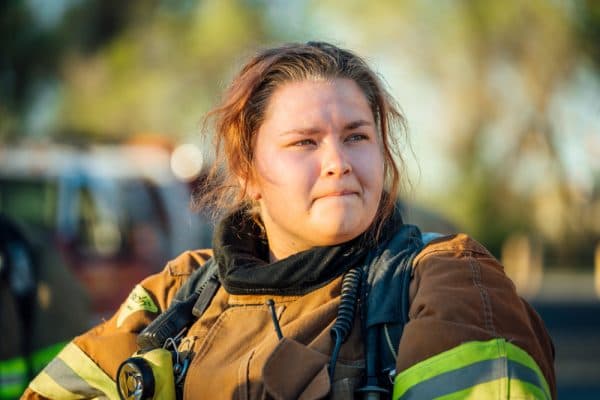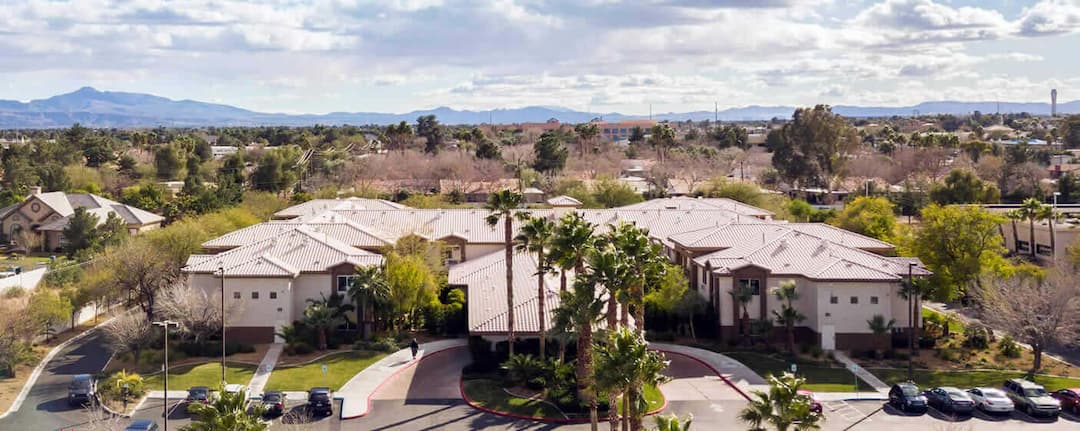First Responder Addiction Treatment Program
Customized Addiction Treatment for First Responders
At Desert Hope, we provide high-quality, evidence-based addiction treatment designed to meet the needs of first responders.
Who We Treat

The relentless pace and harrowing scenes faced by our first responders can leave deep scars, both emotional and physical. Often unseen, these wounds may eventually manifest as burnout, chronic stress, PTSD, and even addiction.
At Desert Hope, we offer just that—HOPE—and healing for our community’s heroes struggling with drug or alcohol addiction and co-occurring mental health disorders like depression, anxiety, and PTSD.
Our specialized programming for first responders empowers these brave men and women to leverage their unique stories, experiences, and inherent resilience to find their way forward.
At Desert Hope, our first responder treatment track is open to various workers in the medical field, law enforcement, and more, including:
- ER doctors and nurses.
- Paramedics.
- EMTs.
- Police officers.
- Firefighters.
- 911 operators.
- Disaster management personnel.
- Recuse workers.
If you are a first responder struggling with drug or alcohol addiction, we are here to help. Call to begin the path to recovery today.
Our First Responder Treatment Program

At Desert Hope, our first responder treatment track creates a safe and supportive environment for participants to rebuild from the trauma they may have experienced in their careers or past.
We offer a full continuum of care with different types of rehab designed to meet the individual needs of each patient, including:
Addiction Treatment Program Topics
Our customized, evidence-based approach fuses the principles of strength-based therapy and positive psychology to help first responders navigate mental health challenges, substance use issues, and other unique aspects of their care.
Through the program’s specialized curriculum, first responders learn to identify and change the underlying thoughts and behaviors that drive addiction, especially those related to their work.
Group discussion topics and other programming may include:
- Stress management.
- Understanding and managing depression and anxiety.
- Anger management.
- Emotion regulation.
- Suicide prevention.
- PTSD Treatment (“trauma-informed care”).
- Understanding the disease of addiction.
- Discharge planning.
The use of small group exercises facilitates open communication, normalization of experiences, and collaborative planning for post-treatment support and family dynamic improvements.
Participants are grouped with other first responders, just like them. Together, we help them re-evaluate what they are “supposed to be able to handle” and replace it with healthy expectations and coping skills.*
At Desert Hope, we also understand that addiction is a family disease, affecting not just the person with a substance use disorder, but those around them as well. That’s why our program provides additional support for loved ones of first responders, including discussions on:
- Boundaries and co-dependency.
- Addiction as a disease.
- Relapse prevention.
A Typical Day at Desert Hope
A typical day at Desert Hope will involve a combination of evidence-based therapies, which may be complemented by various experiential services like yoga, meditation, and music or other art therapies.
As appropriate, we may also prescribe certain medications for addiction treatment and withdrawal management. Our team can provide extra support with medication compliance and education on the potential benefits of treatment medications, harm reduction tools like Narcan, and more.
Sample Weekday Schedule*
8:45 AM–12:00 PM: First responder-specific group therapy sessions
Noon: Lunch
12:45 PM–4:00 PM: Combined group therapy with general population
*Note: Programming is subject to availability and may vary. On occasion, participants might be integrated with our general treatment groups, depending on the number of first responders enrolled in treatment at a given time.
First Responders and Substance Use Disorders

Due to their high-stress environments, routine exposure to tense situations and tragedy, and more unique factors, first responders are at an increased risk of developing addiction and other co-occurring mental health disorders.1
This is especially concerning, because, for many, the fear of appearing weak or unable to do their jobs can stop responders from seeking help.1
First Responder Rehab in Las Vegas

If you or a loved one is a first responder struggling with drug or alcohol addiction, we can help. At our inpatient rehab in Las Vegas, we offer evidence-based, compassionate care to get you on the road to recovery and back to living the life you deserve.
Contact us at to learn more about our specialized addiction treatment for first responders and ways to pay for rehab, and start the admissions process today.
Using Insurance to Pay for Treatment
First responders may be able to use health insurance to pay for addiction treatment. The specific amount of coverage will vary depending on the individual plan.
At Desert Hope, we accept many different insurance plans and are in-network with the following carriers:
To learn more about using insurance to pay for rehab and check your benefits, fill out this simple and secure .
Be Brave: Choose Help
